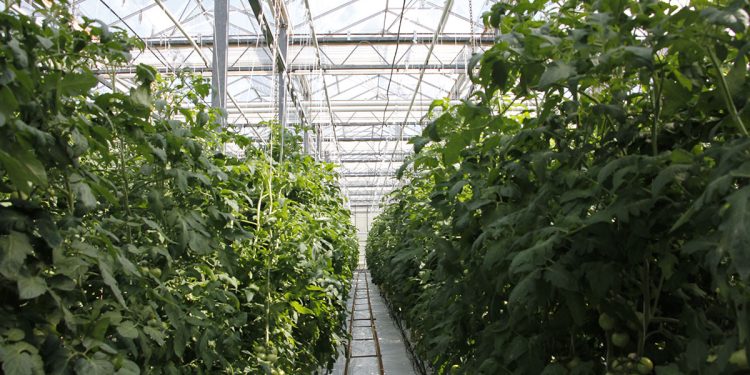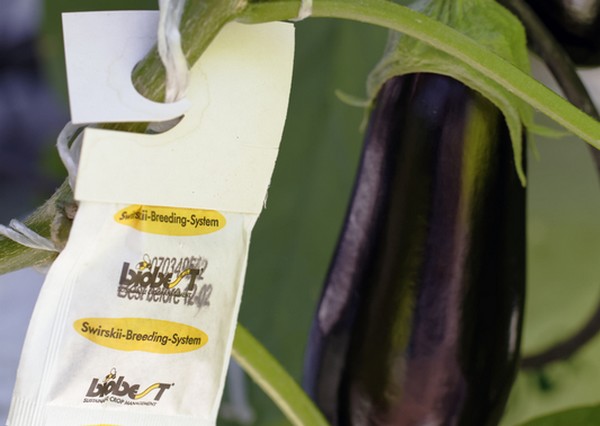#AgriculturalInnovation #GreenhouseTechnology #SustainableFarming #FoodSecurity #BelarusAgriculture #LocalProduce #InnovativeFarming #YearRoundHarvest
The agricultural landscape in the Mogilev region is on the brink of transformation as greenhouses embrace cutting-edge technologies. President’s initiative sparks a local revolution, aiming to eliminate off-season vegetable imports, ensuring access to affordable, locally grown produce year-round.
In response to the president’s call for self-sufficiency, the Mogilev district is witnessing the reconstruction of greenhouses at OJSC “Firma Kadino.” By adopting innovative methods, these greenhouses are set to redefine Belarusian agriculture, offering a sustainable solution to the challenge of off-season vegetable production.
Belarusian agriculture is undergoing a significant shift with the reconstruction of greenhouses in the Mogilev region. The initiative, spurred by the president’s call for self-reliance, aims to tackle the issue of off-season vegetable imports. Historically, the winter months in Belarus saw a reliance on imported cucumbers and tomatoes, leading to exorbitant prices in local markets. In a bid to address this challenge, President [President’s Name] instructed agrarians to explore innovative approaches to produce fruits and vegetables locally, making them affordable for all.
The solution lies in modernizing greenhouse facilities, a step that the Mogilev district is actively taking. The focal point of this transformation is the OJSC “Firma Kadino,” a key player in the region’s agricultural sector. Traditionally, tomato harvest in the greenhouses commenced at the end of April, culminating in October to early November. However, starting from the upcoming year, the harvest season will extend into the off-season, coinciding with the peak period of imported fruits and vegetables.
This extension of the harvest season is made possible through a groundbreaking technique: supplementary lighting. Traditional agriculture heavily relies on sunlight, but the new approach involves installing additional lamps that mimic the sun’s spectrum, enhancing plant growth. This technique, hitherto unexplored in the region, promises a year-round harvest, ensuring a consistent supply of local tomatoes.
The Institute “Mogilevgrazhdanproekt” is diligently working on the project documentation for the upcoming greenhouse reconstruction. The plan includes the installation of approximately 8,500-9,000 energy-efficient lamps across 3 hectares of glasshouses. While the initial investment is substantial, discussions are underway within the government to subsidize electricity costs, making the venture economically viable in the long run.
The reconstruction project at OJSC “Firma Kadino” is slated to last six months. With the final harvest of the year scheduled for late October, the project’s planning phase will conclude, and the procurement of materials and equipment will commence in December. Construction is set to begin in December, with completion targeted for May 2024. By July, seeds will be sowed, and within 90 days, the plants will reach full maturity. The first harvest using the new technology is anticipated in October the following year.
The supplementary lighting will be gradually implemented starting from October 2024. Initially, the lamps will operate at a reduced capacity, depending on natural daylight conditions. This phased approach ensures a seamless transition into year-round production.
The impact of this initiative extends beyond economic considerations. The regional government, led by Oleg Chikida, believes that this modernization effort will significantly reduce reliance on imports and enable the region to meet its internal consumption demands throughout the winter. By fostering self-sufficiency, the Mogilev region is not only ensuring food security but also paving the way for a more sustainable future.
The agricultural revolution underway in the Mogilev region represents a paradigm shift in Belarusian farming. By embracing innovative technologies, particularly supplementary lighting in greenhouses, the region is poised to achieve year-round vegetable production. This not only ensures a stable supply of locally grown produce but also diminishes the need for costly imports, making fresh vegetables more accessible to the local populace. Through this initiative, Belarus is taking a giant leap towards sustainable agriculture, bolstering food security and promoting self-reliance.









